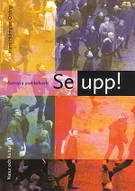Tag Archives: Grammar
Swedish Verbs part 3 Posted by Transparent Language on Dec 5, 2008
Luke from Sydney had a question about verbs. He wanted to know if all Swedish verbs end in “a” – that is something I briefly touched upon in the Swedish verbs part 2 post a while back. So let’s review: No, not all Swedish verbs end in “a.” Some end in other vowels. And some…
Thanksgiving and Word Order Posted by Transparent Language on Nov 27, 2008
Happy Thanksgiving to those who celebrate it! I don’t. I did it twice in the past, because my dearly beloved demanded turkey and stuffing and mashed potatoes. Turkeys are easy to come by here, our local Ica MAXI carries them. And during November you can even spot frozen cranberries, so if you’re really dedicated you…
Åka or Gå? Posted by Transparent Language on Oct 12, 2008
Today’s topic is one that confuses many Swedish learners – those pesky verbs that are deceptively similar, have pretty much the same meaning in English, yet in Swedish are used in a completely different context. Sounds like fun, doesn’t it? Actually, Swedish has quite a few such verb combinations. But today we’ll start with the…
Swedish Verbs, part 2 Posted by Transparent Language on Sep 23, 2008
A few posts back we started to discuss Swedish verbs, remember? And I told you that those verbs can be divided into two big groups: “ar” and “er”. I also mentioned that there is a third group and then promptly refused to say anything else about it. Oh yes, that third verb group. This is…
Swedish Verbs, part 1 Posted by Transparent Language on Sep 12, 2008
Long, long time ago, I think in one of my earliest posts, I said that Swedish verbs are easier than English. And for the most part, that is indeed true. There is no goofy “–s” in the third person singular, no irregular “to be”, the auxiliary “do” is gone altogether, and “have/has” is simply “har”…
Real Gender Specific Nouns Posted by Transparent Language on Sep 4, 2008

In my last post, as I’m sure you’ve noticed, I showed you a Swedish noun with a “real” gender. A noun that has both a male and a female version. That word was “skådespelare” which means an “actor”. This is actually a bit similar to what happens in English as well. We have an actor…
Partikelverb Part 1 Posted by Transparent Language on Aug 29, 2008

Adrienne asked a question about partikelverb, and because I’m such a good sport, I decided to blog about it today. Now say, I know it’s an impossible task to make partikelverb interesting, but hey, we can give it a shot, right? So, what’s a partikelverb anyway? As the name suggests, it’s a verb and a…


